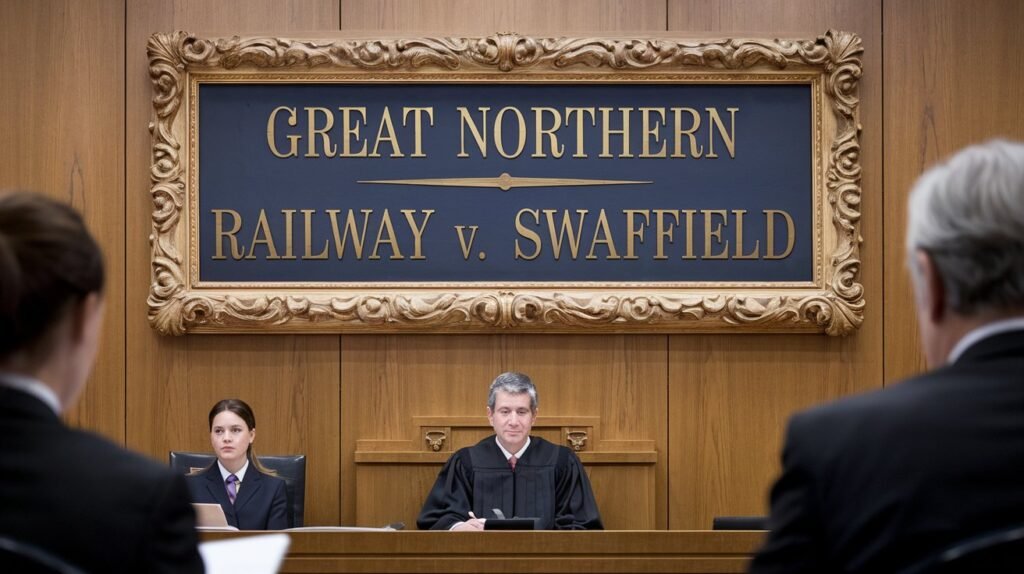Bhagwandas Goverdhandas Kedia v. M/s Girdharilal Parshottamdas & Co. 1965 (Case Summary)

This landmark judgment by the Hon’ble Supreme Court of India clarified the legal principles governing contract formation via instantaneous communication methods, such as telephone conversations. The Court distinguished between postal and telephonic communications, establishing that in the case of instantaneous communication, a contract is formed at the place where the acceptance is received by the offeror.
Table of Contents
ToggleFacts of Bhagwandas Goverdhandas Kedia v. M/s Girdharilal Parshottamdas & Co.
- On July 22, 1959, Bhagwandas Goverdhandas Kedia (Appellant), proprietor of Kedia Ginning Factory Oil Mills in Khamgaon, engaged in a telephonic conversation with M/s Girdharilal Parshottamdas & Co. (Respondent), based in Ahmedabad.
- During the call, the Appellant agreed to supply cotton seed cakes to the Respondent.
- The Respondent accepted the offer during the same telephone conversation.
- Subsequently, the Appellant failed to deliver the goods as agreed.
- The Respondent filed a suit in the City Civil Court at Ahmedabad, seeking damages for breach of contract amounting to Rs. 31,150.
- The Appellant challenged the jurisdiction of the Ahmedabad court, arguing that the contract was concluded in Khamgaon, where the acceptance was spoken.
Issues framed
- Whether the Ahmedabad Civil Court had jurisdiction to entertain the suit?
- In the context of telephonic communication, whether a contract is formed at the place where the acceptance is spoken or where it is heard?
Subordinate Court Judgment
The Trial Court held that the Ahmedabad Civil Court had jurisdiction, reasoning that in the case of instantaneous communication, the contract is formed at the place where the acceptance is received by the offeror.
The Appellant’s revision petition was dismissed by the Gujarat High Court. The Appellant then filed a Special Leave Petition before the Hon’ble Supreme Court of India.
Judgment of Bhagwandas Goverdhandas Kedia v. M/s Girdharilal Parshottamdas & Co.
The Supreme Court examined the provisions under Sections 3 and 4 of the Indian Contract Act, 1872, which govern the communication and completion of proposals and acceptances. It also referred to the case Entores Ltd. v. Miles Far East Corporation to analyze the legal position regarding instantaneous communication, such as telephonic conversations.
The Court distinguished between the postal rule of acceptance, where a contract is deemed to be formed at the place and time the letter of acceptance is posted, and instantaneous communication, where no such presumption applies. In telephone conversations, the contract is complete only when the acceptance is heard and received by the offeror. The reasoning is that both parties must be in mutual agreement at the same time and that agreement can only be said to exist where the offeror hears the acceptance. Therefore, in this case, since the offer was made in Ahmedabad and the acceptance was received there during the phone call, the Court held that the contract was concluded in Ahmedabad, giving jurisdiction to its civil courts.
The Supreme Court upheld the rulings of the lower courts and affirmed that the Ahmedabad Civil Court had jurisdiction over the matter. The majority concluded that the place where the acceptance is received in the case of telephonic communication is determinative of where the contract is formed, hence, the court held that the contract was validly concluded in Ahmedabad, thereby dismissing the appeal filed by the appellant.





